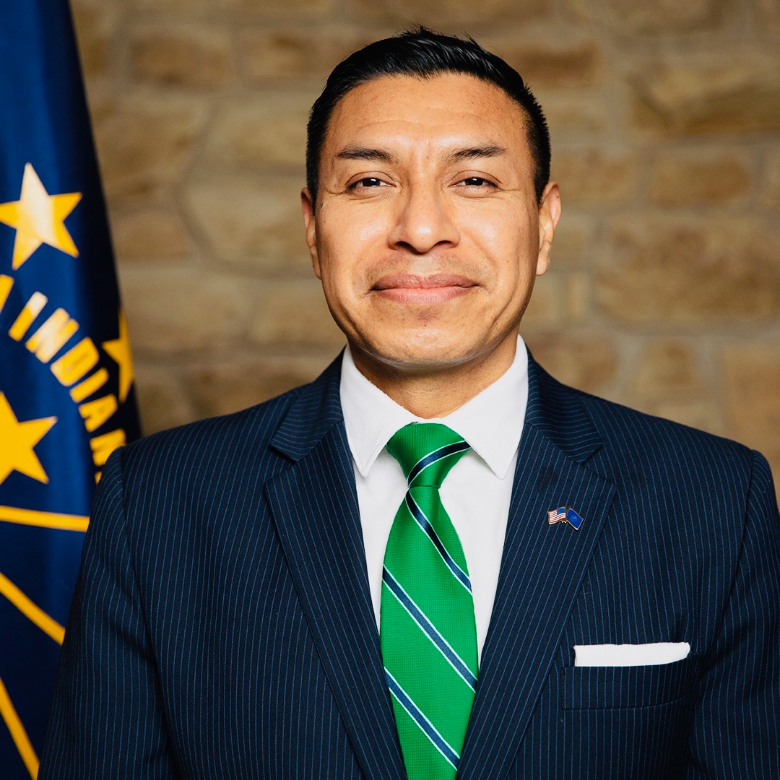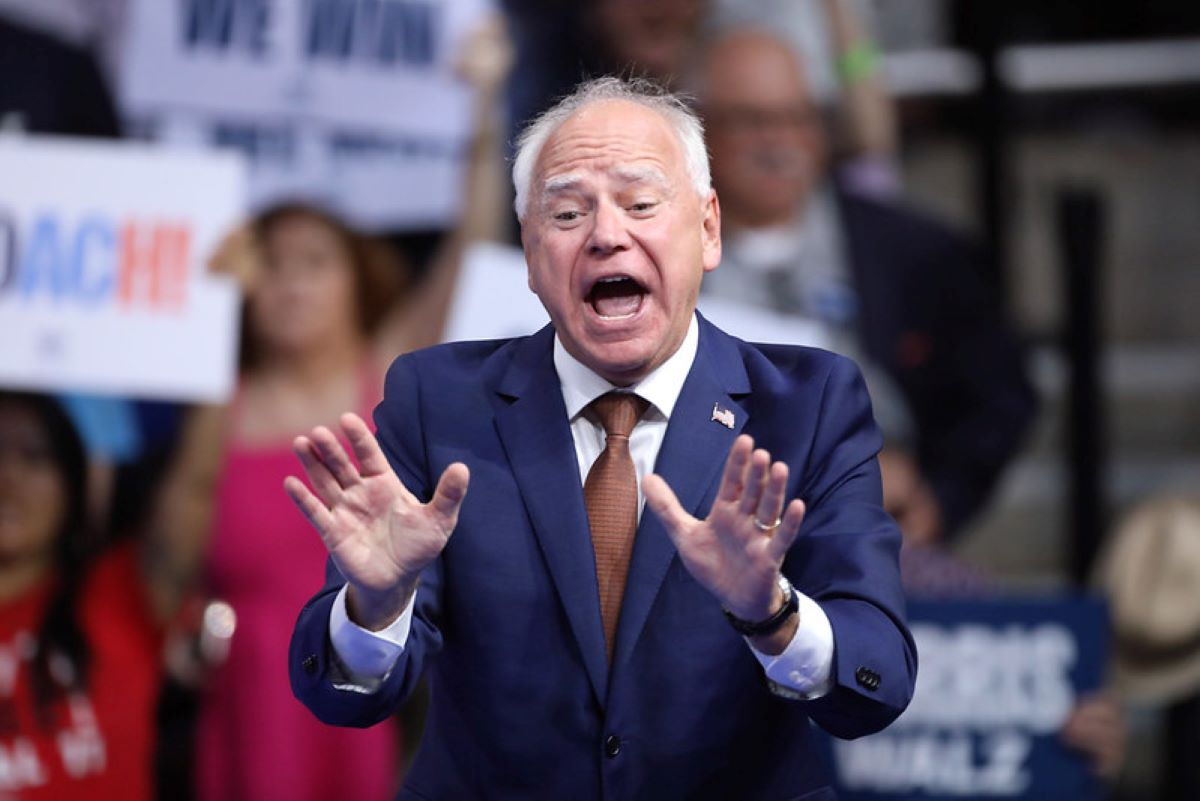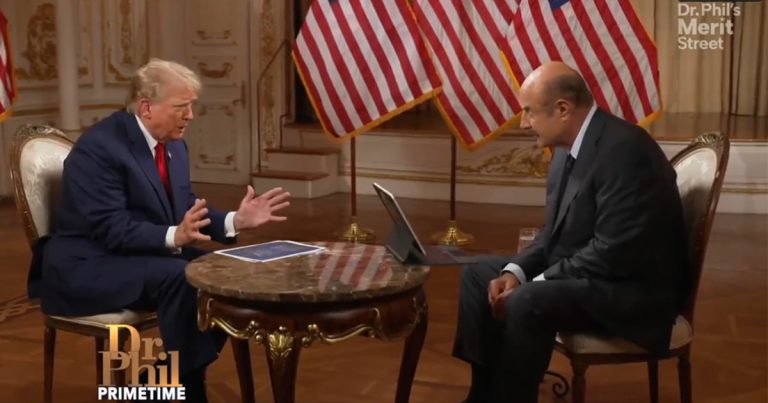Indiana’s Attorney General Todd Rokita and Secretary of State Diego Morales recently submitted a formal request to the U.S. Citizenship and Immigration Services (USCIS) to verify the citizenship status of over half a million registered voters in Indiana. Their October 11, 2024, letter seeks to ensure that only U.S. citizens participate in the upcoming federal, state, and local elections.
With the voter registration deadline already past and early voting underway, Indiana’s top officials are aiming to bolster the credibility of the voting process by focusing on individuals whose eligibility might be unclear due to missing identification details in their registration.
This initiative highlights the Indiana officials’ commitment to safeguarding the integrity of the electoral process, a goal echoed in a 2008 U.S. Supreme Court decision, which upheld measures to prevent voter fraud and enhance public confidence in election outcomes. Rokita and Morales cited this case in their letter, emphasizing that confirming the citizenship status of registered voters is fundamental to preserving the Republic and ensuring that only lawful votes are counted.
The verification process specifically targets 585,774 registered voters in Indiana, many of whom registered without presenting state-issued identification like driver’s license or social security numbers. This category also includes overseas voters who may lack immediate verification through traditional means.
According to Rokita and Morales, federal law prohibits non-citizens from voting in elections for federal offices such as President, Vice President, and Congressional seats. As the letter details, falsely claiming U.S. citizenship to vote is a federal crime punishable by up to five years in prison.
Indiana’s request to USCIS relies on federal statutes, which mandate that state agencies collaborate with USCIS to confirm the citizenship or immigration status of individuals upon request. Rokita and Morales argue that Indiana is legally required to perform routine “list maintenance” to ensure the voter rolls are accurate and to remove ineligible voters when necessary.
State law further obligates Indiana election officials to verify both residency and citizenship of registered voters. This federal collaboration is seen as an essential tool in Indiana’s legal obligation to maintain an accurate voter list.
One of the core challenges Indiana faces in this process is that there is no standardized method across the country to verify voter citizenship with absolute certainty. To bridge this gap, Indiana is using all available legal channels to confirm voter eligibility, and USCIS’s verification role is viewed as an integral part of this effort.
According to federal guidelines, USCIS is required to respond to state inquiries seeking to ascertain the citizenship or immigration status of individuals for authorized purposes, such as voter list maintenance.
As Election Day approaches, the pressure to address these potential eligibility discrepancies has intensified. Rokita and Morales are determined to provide Indiana voters with confidence that the state’s elections will be secure, emphasizing that illegal votes undermine the democratic process and threaten public trust.
Secretary of State Morales affirmed that maintaining an accurate voter registration list is critical to upholding fair elections, especially as early voting has already begun in the state. “A fair and secure election process begins with accurate voter information,” Morales stated. He expressed pride in collaborating with Rokita to take proactive steps in obtaining missing information for individuals registered without state-issued IDs.
Morales stressed that his duty as Indiana’s Chief Election Officer is to ensure compliance with all legal voting requirements, including citizenship status. By reinforcing eligibility verification measures, Morales aims to increase public confidence in the election process, stating, “Only U.S. Citizens can vote in Indiana. Period.” The statement underscores Indiana’s commitment to upholding legal standards for voting while emphasizing the state’s efforts to enhance transparency and accountability in the voter registration process.
In their letter, Rokita and Morales argue that protecting the voting process is not only a legal duty but a moral obligation to safeguard the democratic system. They see citizenship verification as a key component in protecting the constitutional foundation of the Republic, as well as in ensuring fair representation for American citizens. By acting on this commitment, Indiana’s leaders hope to set a precedent for robust election integrity measures, one that may prompt similar actions in other states.
This request to USCIS, however, is likely to face scrutiny and may stir political debate over its implications for voter access. Critics of such verification efforts often argue that they can disproportionately affect marginalized communities or create barriers to legitimate voter participation.
Proponents, however, argue that preventing any form of illegal voting is a fundamental responsibility of the state, particularly as public trust in elections has faced challenges in recent years.
With early voting already underway and Election Day nearing, Indiana’s move to request federal assistance underscores the sense of urgency surrounding election security issues. Whether USCIS will be able to meet the demand for timely verification remains uncertain, but Rokita and Morales are pressing forward with their mission to confirm the citizenship status of Indiana’s voters. By addressing these concerns now, they hope to set a clear standard that emphasizes accountability and transparency in the electoral process.
As the nation heads toward another major election cycle, Indiana’s request could signal a broader trend in election security measures, potentially influencing other states to seek similar verifications to ensure their voter rolls reflect only those eligible to vote.



